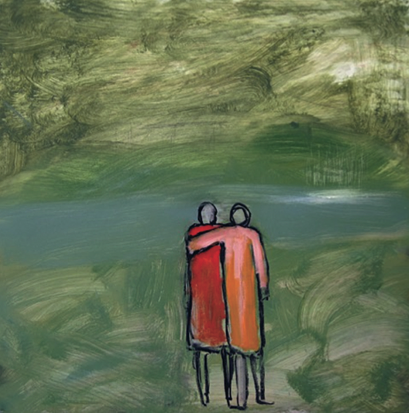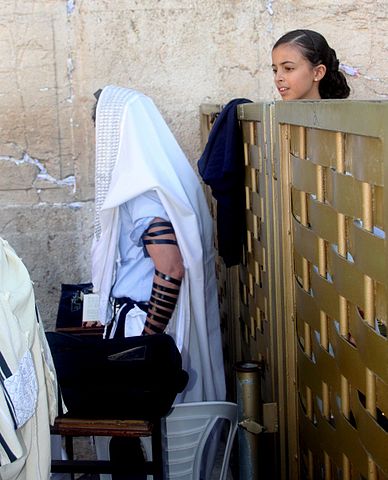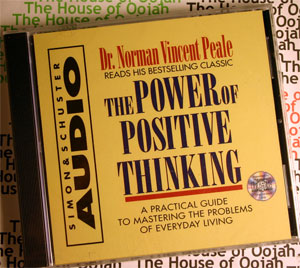Author Archives: Michelle Brafman
April 3, 2020 by Michelle Brafman
Desperately Seeking Yeast
On day nine of Governor Hogan’s quarantine, I embarked upon a journey to find yeast. My daughter, uprooted from her college life, had decided that she wanted to make challah for Shabbat before Passover began. What a way to connect with her faith! What a perfect project for a quarantine! What a life skill!
My weekly trip to Whole Foods coincided with this particular Friday morning, so I armed myself with a packet of my precious stash of anti-bacterial wipes and hit the crowded store. With some clever maneuvering of my cart, I made my way to the baking aisle. No yeast to be found.
- 2 Comments
October 10, 2016 by Michelle Brafman
A Prayer for the Nameless

Marion Roth.
Each Yom Kippur our rabbi invites a few congregants to write a prayer leading up to the Yizkor Memorial service. Their words are always resonant and humbling. Two years ago, my short story “Sylvia’s Spoon,” winner of the 2007 Lilith Magazine Fiction prize, had been republished, and I mentioned to my rabbi that I was once again overwhelmed by the response to this tale of early pregnancy loss.
I told my rabbi that as a writer, if I get extremely lucky, a story that I send out into the world will come back to me in the form of more stories, a call and response of sorts. I described some of the moving and raw notes that I received about about miscarriages and abortions and babies never acknowledged or mourned.
It was only after my rabbi asked me to write a Yizkor prayer for these babies that I began to think of my own story. Almost twenty years ago, I’d lost a pregnancy a few months before Yom Kippur, and I remember sitting in shul, wondering if I had the right to recite Yizkor for my baby. I felt that there were no prayers for this life or for my husband or me. No way to heal.
On the eve of this Yom Kippur, I offer this prayer for anyone who has ever lost a pregnancy.
“A Prayer for the Nameless.”
On behalf of those who have endured the private grief of early pregnancy loss, I pray.
I pray extra hard for the men and women who are still trying to conceive. I wish for them a respite from the loneliest of lonely griefs. I hope they find comfort and promise somewhere, in prayer or the stories of the Biblical Sarah, Rivka, and Hannah or others who have shared this specific pain.
I pray for these men and women to have patience with well-meaning loved ones who fumble for the right words of comfort. There are no right words. I hope that they find the ear of a friend or a stranger and unburden themselves. Please God, allow them to let go of their shame and their timelines. Bless them with the courage to trust.
I pray the loudest for the nameless. The babies who never made it to the bimah, never received the rabbi’s hands upon their crowns or the blessings—Y’vorech’cho adonoy v’yishm’recho. Y’ayr adonoy ponov aylecho vichuneko—neither for a baby naming nor a bar or bat mitzvah.
I pray for the parents who named their babies and allowed themselves to wonder whether their children would inherit their grandmother’s perfect pitch or father’s love of board games. I pray for the parents who went on to make families, but who honor a due date and ponder a life that wasn’t, a broken memory that inhabits a crevice of their souls.
I call out to God, to give strength to those suffering from this hidden grief. Let us respond by remembering. Let us pray for them. And let us pray—for the nameless.
Michelle Brafman is the author of Washing the Dead and Bertrand Court, two works of fiction. Her writing has appeared in Slate, the Los Angeles Review of Books, LitHub, The Nervous Breakdown, Tablet, Lilith, and elsewhere. She teaches at the Johns Hopkins MA in Writing Program and lives in Glen Echo, Maryland with her husband and two children. www.michellebrafman.com
- 2 Comments
July 16, 2015 by Michelle Brafman
Forgiveness Means Taking a Wrecking Ball to the Hard Crusts We Build Around Our Hearts
I’m knee-deep into what promises to be a fifty-plus gig book tour. After spending seven years writing, revising, and trying to publish my debut novel, Washing the Dead, I’m out of my house. Out of my office. Out of my pajamas. And, often, out of my comfort zone.
I’ve fretted about each reading. Will anyone show up? What if they do? What if I get a heckler? What if we don’t sell any books? What if we run out? The list goes on. Gratitude is the only thing that grounds me. Some bookseller, librarian or book-club host has believed in my novel enough to want to share it with his/her community. He or she has gone to the trouble of spreading the word via social media or flyers or Paperless Post evites. And if that’s not enough, they’ve researched my work in order to write introductory remarks, and in many cases put out a delicious spread. Dayenu!
Hiccups do occur during my readings. Sirens blare, children cry, audience members use their outdoor voices while guessing my height, and readers give away the ending to the mystery my character is trying to solve. I now carry a hankie because reading aloud makes me schvitz, Albert Brooks/Broadcast News style. Who knew?
A friend recently asked me if I was growing tired of the podium, and I answered “not yet,” because something amazing and exhilarating occurs at every event, big and small. I’m also still stunned that people would devote their time and brain space to my novel, a story about Barbara Pupnick Blumfield’s quest to find her way back home. After years of exile from her Milwaukee Orthodox Jewish community, Barbara’s former rebbetzin invites her to perform a tahara (the ritual of preparing the body for burial) on the mentor who nurtured her after Barbara’s mother abandoned the family. And so begins her long journey back to her religious community, her mother’s love, and the piece of herself she’s unwittingly withheld from her teenage daughter. In order to return home, Barbara must solve the mystery behind her mother’s disappearance from the family, and it’s for this reason the book has been called a spiritual page-turner.
- No Comments
April 9, 2015 by Michelle Brafman
Money Matters!
I’ve always maintained that I don’t like talking about money because it’s crass, but the real reason is that the topic has always overwhelmed me. Despite my reticence, I recently talked about demystifying this taboo subject as I co-facilitated, with Lilith editor in chief Susan Weidman Schneider, a sold-out Lilith salon, “Money Matters,” at the Sixth and I Historic Synagogue in Washington, DC. About three dozen women came in from the rain for an honest, smart conversation about money.
I was surprised to discover that I wasn’t the only one who feels shame about having what feels like an unhealthy relationship with the dollar. Lisa Yochelson of Not Your Bubbe’s Sisterhood, Sixth and I’s women’s programming arm for 20s and 30s, introduced the evening by asking each of these accomplished, professional women to say one word they associate with money. Some of the angst-ridden responses: stressful, overwhelming, necessary, disorganized, illiterate, relevant, complex, and socially constricted.
A few women said they’d come to the event because they wanted to expand their knowledge, but even more of them described a chasm between their substantial professional accomplishments and their ignorance about the basics of money management. So I found myself asking them: Despite our professional advances, do we have any more financial agency than our mothers? “My mother used to hide clothing bills and shopping bags from my dad,” one participant said, and we laughed—partially at the subterfuge, and partially, shamefacedly, out of recognition too. (I confessed to hiding parking tickets from my husband, but kept silent about the Banana Republic bag I recently slid into the recesses of my closet).
- No Comments
April 8, 2014 by Michelle Brafman
A Hand Through the Mechitza

Wikimedia/Peter van der Sluijs
My family is hitting the b’nai mitzvah circuit hard these days. Our daughter is in seventh grade, and we’ve been spending our Shabbats visiting various local synagogues to celebrate our friends’ simchas.
When we travel to the modern Orthodox synagogue, the men and women are separated by a mechitza, a partition made of wood and plexiglass. I grew up in a synagogue with a mechitza, and I never thought much about this gender segregation until my first semester in college, when Sandra Bartky and Andrea Dworkin opened my eyes to the myriad ways women were marginalized. I rejected the Orthodox rationale that women did not need to perform rituals in the synagogue because we are more spiritually evolved or that our energies are best directed toward keeping the dietary laws, educating the children, and lighting the Sabbath candles.
My feelings about mechitzas lasted until four years ago, when I brought my daughter to a modern Orthodox synagogue for her first time. Our friend, Debbie, and her husband had invited us to their son’s bar mitzvah. Debbie is a dynamo, one hundred layers deep, and sings like a cross between Sheryl Crow and the lead Dixie Chick. In the months leading up to the simcha, she shared her sadness about not being permitted to participate in the service. I felt her hurt.
- 1 Comment
January 21, 2014 by Michelle Brafman
What We Don’t Talk About When We Talk About Hair
 “You’re going to talk about hair? For two hours?” my mother said after I told her I’d been invited to co-facilitate a Lilith Salon, part of a series of discussions held at hundreds of locales throughout the country, including theaters, synagogues, and private homes. My mother then proceeded to talk about her hair for a good fifteen minutes, and we could have kept going.
“You’re going to talk about hair? For two hours?” my mother said after I told her I’d been invited to co-facilitate a Lilith Salon, part of a series of discussions held at hundreds of locales throughout the country, including theaters, synagogues, and private homes. My mother then proceeded to talk about her hair for a good fifteen minutes, and we could have kept going.
On a balmy winter’s night, I headed down to the Sixth and I synagogue in Washington, DC for more hair talk with the Not Your Bubbe’s Sisterhood, a group of urban women in their twenties and thirties. I struck up an easy conversation with a redhead with perfectly sculpted curls and big green eyes. She credited a specific “product” for her gorgeous locks and offered a few suggestions about which one might work for my curls. Hair is the ultimate icebreaker for women.
We settled into a circle of folding chairs, and Susan Weidman Schneider, our lead-facilitator, asked the group to share stories about their hair. The curly girls talked about the gyrations they go through to manage their hair: timing of the washings, hunting down expensive products to avoid frizz, or cringing when boyfriends run their fingers through their hair and in turn wreak havoc on their “dos.” Susan described us as “a secret sisterhood of curly-haired women.”
We all commiserated about the power and pall of a “bad hair day.” Many heads shook in agreement to tales of the sweet maternal moments of braiding and combing as well as our mothers’ edicts to not cut/grow/straighten/perm our locks. Clearly attitudes about hair and beauty ripple through generations, and one super smart woman articulated the idea that conversations we have about our hair mirror our hormonal, emotional, social, and developmental stages in life. She was spot on. When we talk about hair, we’re talking a whole lot more than gels and bad perms.
I was struck by one straight-haired woman’s irritation with people who assumed that because she didn’t have “Jewish hair,” she wasn’t Jewish. As a teen, I desperately wanted to unload my Jewish hair. I’d spent my early childhood in an intense Jewish community, and I found the escape into a secular world alternately terrifying and freeing. I wanted hair that feathered, like Dorothy Hamill or David Cassidy’s or a long blonde mane that swished when I walked. Before bed each night, I showered and braided my wet hair so that my waves would have some predictability when I awoke the next morning. I didn’t wear a cap during swim practice so the chlorine would lighten my hair (it did, to the color of dried mud).
I’ve since made friends with my curls, but now I have a host of new hair-related concerns, some pertaining to my role as a mother. I am a liceaphobe, albeit recovering. I cringe when I hear the expression “nitpick,” and I once heard my daughter tell a playmate that they could not share their American Girl Dolls’ brushes. All of the salon women agreed on the overall disgustingness of microscopic eggs feeding on blood drawn from the scalp. Most of the women, however, had yet to experience their first memo from their child’s school nurse and the resulting nuisance of lice combs, endless loads of laundry, and pesticides and/or the embarrassment of their little one being cast as the Typhoid Mary of head bugs (reminiscent of crabs and other communicable issues that circulated through college dorms).
I have certain friends with whom I’ve discussed our evolution from a henna, to semi-permanent dye, to permanent dye, to monthly coloring. Others have decided to go gray, and we talk about that too, and for a few hours after we’ve chatted, I swear I’ll stop exposing myself to hair dye toxins (and Diet Coke while I’m at it). My vanity wins out every time. The Not Your Bubbe’s Sisterhood women complained about bushy eyebrows that colonize their foreheads, while my friends submit to using a pencil to fill in the sparseness. We’re saying a slow goodbye to the follicular bounties of our youth, and a tentative hello to the beauty that comes from grace, acceptance, and the growing awareness that life is fragile.
- No Comments
November 7, 2013 by Michelle Brafman
Dr. Norman Vincent Peale and Me

It began with a glance. I was walking out of Barnes & Noble on a warm May afternoon when I spotted him, Dr. Norman Vincent Peale, or, shall I say, his four-disc audio book, The Power of Positive Thinking, perched on the “bargain buys” table in the foyer. At that time, I was unaware that Dr. Norman Vincent Peale had been an evangelist and close friend to Richard Nixon and Billy Graham and enemy of my hero, John F. Kennedy. I didn’t know he’d coined the expression “When life hands you lemons, make lemonade.” I only knew that I’d been feeling a bit blue lately, and who couldn’t benefit from some positive thinking? I paid for the boxed set with the last 15 dollars in my wallet.
Five minutes into the first disc, and he had me. I credit his preacher’s meter, the way he punched the hell out of his iambs, his words bypassing my frontal lobe, whispering to my lower brain stem, and then traveling deeper, deeper down to my soul.
- 3 Comments
 Please wait...
Please wait...